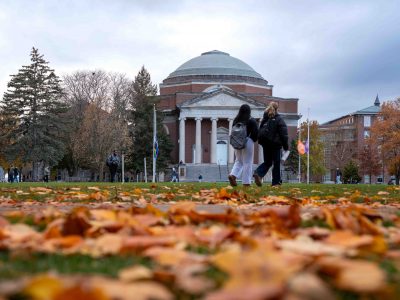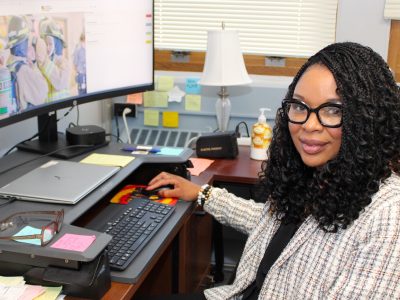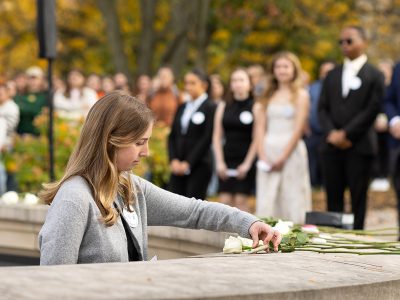Reconstructing the Lives and Genealogies of Enslaved People: Maxwell, iSchool Faculty Partner on Searchable Database on the ‘’Cuse Conversations’ Podcast
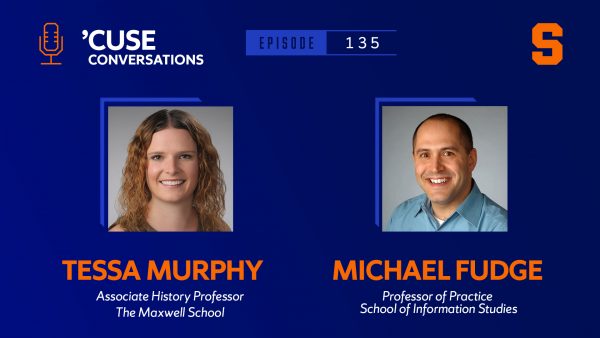
Beginning as early as the 15th century, the lives of more than 12.5 million men, women and children of African descent were forever altered as they were forced into the trans-Atlantic slave trade, uprooted from their homes and brought against their wills to territories around the world, including the British Crown colonies and the colonies in the United States.
When these slaves were brought to former British Crown colonies in the Caribbean, territories including St. Lucia, St. Vincent, Dominica and Grenada, oftentimes their arrivals were marked with entries into detailed registries that documented their first and last names, their ages, occupations, specific places of origin and even familial connections to others enslaved on the same plantation or in the same household.
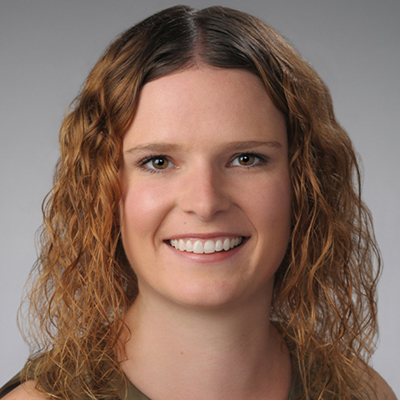
Tessa Murphy is an associate professor of history in the Maxwell School whose research and teaching interests concentrate on the history of the colonial Americas, including the Caribbean, Central and South America.
Wanting to capture the important details found in these registries, to both broaden our understanding of slavery and explain the experiences of people who rarely had the opportunity to leave a record of their lives, Murphy collaborated with Michael Fudge, a professor of practice in the School of Information Studies, and student research assistants on a unique, interdisciplinary research project to create a publicly accessible, searchable database of more than 16,000 former enslaved people in St. Lucia in 1815.
“Slavery in the Age of Abolition” reconstructs the life histories and genealogies of people enslaved on the expanding frontiers of the British Empire in what is commonly referred to as the age of abolition.
“The database is going to be such a powerful research and teaching tool. I used examples from the database in an upper-level history seminar that I’m teaching right now, where I distributed examples to different students and had them analyze these as primary documents. I asked them ‘What do you get from looking at this sheet that you didn’t know before about the realities of slavery?’ There are multi-generational family trees that you can derive from these. They’re quite bureaucratic documents, and when you look at them, they might seem to be just listing facts, but when you really engage with what they’re telling you, they’re testifying to the violence that underlay this system. And that really informed the daily lives of the people whose names are being recorded here,” says Murphy, who recently was awarded a 2023 faculty fellowship from the Syracuse University Humanities Center in support of her work.
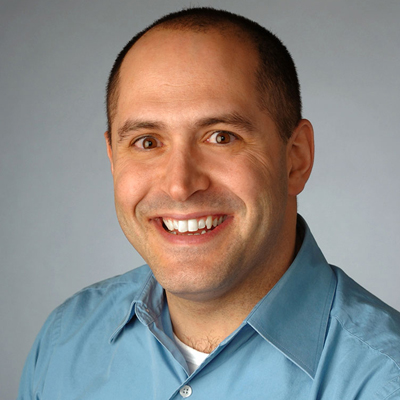
“This was a really unique opportunity to practice what we really talk about in the School, which is being interdisciplinary and being transdisciplinary, where we crossover and help work with other disciplines that need to have their data and their information made more accessible and easier to interpret and understand. What’s really fascinating about this particular project is the amount of data. The traditional inaccessibility of the data from a search perspective and the effort that we put into making it much more accessible and searchable. It’s going to be transformative for a lot of people,” adds Fudge, who is also the program director for the iSchool’s Information Systems master’s program.
On this “’Cuse Conversation,” Murphy and Fudge discuss how the project came to be, the arduous task of compiling their database, the challenges of digitally capturing historical records from more than 200 years ago, how this database can serve as a teaching tool for the descendants of these former slaves, and how the project provided students in both Maxwell and the iSchool with valuable real-life experience.
Note: This conversation was edited for brevity and clarity.
Check out episode 135 of the “’Cuse Conversations” podcast featuring Tessa Murphy and Michael Fudge. A transcript [PDF] is also available.

